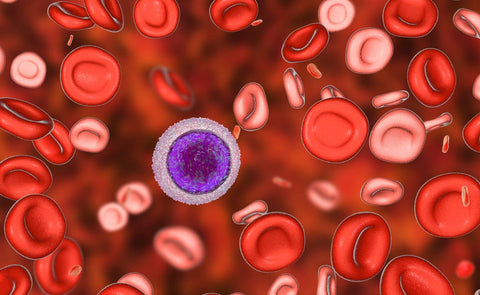Understanding the role of fats in your diet is essential for maintaining a well-balanced lifestyle. Fats are not just a source of energy; they are vital for numerous bodily functions, including nutrient absorption and hormone production. Ignoring the importance of fats can lead to significant health challenges.
If you don't consume sufficient healthy fats, it might have unintended consequences on your physical and mental well-being. Recognizing these potential effects can help guide your dietary choices and support overall health.
1. Impaired Brain Function
Fat deficiency can significantly affect your brain function. Essential fatty acids such as omega-3 and omega-6 are crucial for maintaining optimal brain health. Your brain's gray matter, which contains neuron cell bodies, heavily relies on polyunsaturated fatty acids. Without these, you may experience cognitive difficulties or developmental issues.
The intake of sufficient dietary fats supports neurotransmitter functioning. For instance, dopamine production can be impacted in cases of fat deficiency. Dopamine deficiency might lead to issues with attention and motivation, affecting daily activities.
Fetal and infant brain development particularly depends on adequate fat consumption. A lack of necessary fats during these critical growth periods could hinder neural development. Adequate amounts of these fats are necessary for forming and maintaining synaptic connections, which are vital for learning and memory.
Incorporating the right balance of dietary fats in your diet is essential for preventing potential negative impacts on brain health.
2. Weakened Immune System
A diet low in fat can compromise your immune system. Healthy fats play a crucial role in maintaining the integrity of cell membranes, which are vital for immune function. When your body lacks sufficient fat, this protective barrier weakens, making it easier for infections to penetrate.
Fats are essential for the absorption of fat-soluble vitamins like A, D, E, and K. These vitamins are important for supporting immune health. Without enough dietary fat, you may face deficiencies, impacting your body's ability to ward off illnesses effectively.
Moreover, fats provide energy required by immune cells to function correctly. Insufficient fat intake can lead to reduced energy, affecting the performance of these cells. This reduced capacity contributes to an increased susceptibility to infections and illnesses.
Anti-inflammatory properties of healthy fats, such as omega-3 fatty acids, are particularly important. These fats help modulate inflammatory responses and maintain a balanced immune environment. A deficiency may result in uncontrolled inflammation, further compromising your immune system.
To maintain a robust immune system, incorporating an adequate amount of healthy fats in your diet is essential. This ensures proper vitamin absorption, energy levels, and inflammation management, all contributing to a well-functioning immune response.
3. Dry and Scaly Skin
When your diet lacks essential fats, especially omega-3 and omega-6 fatty acids, your skin can suffer. Fats play a crucial role in maintaining the skin's moisture barrier. Without enough fat, your skin may become unable to retain adequate moisture.
Symptoms might appear as dryness or flakiness. Your skin could develop scaly patches that feel rough to the touch. People with fat deficiency might notice these changes on their arms, legs, or across the face.
Additionally, fatty acids help control inflammation in the skin. A deficiency might lead to irritation and worsen conditions like dermatitis or eczema. Ensuring that your diet includes sources of essential fats can help maintain skin health.
4. Poor Vision
A deficiency in essential fats can significantly impact your vision. Omega-3 and omega-6 fatty acids are crucial for maintaining eye health. These fatty acids contribute to the overall structure and function of your eyes, particularly the retina.
Without adequate intake of these nutrients, you may experience issues such as dry eyes and impaired light detection. Over time, a lack of these fatty acids can lead to more serious conditions like retinopathy. This condition involves the deterioration of the retina and can result in vision loss if not addressed.
Fat-soluble vitamins, such as vitamin E, play a vital role in protecting your eyes from oxidative stress. A deficiency in these vitamins can further exacerbate vision problems. Ensuring you consume a balanced diet rich in healthy fats can help prevent these issues.
5. Hormonal Imbalances
Fat plays a crucial role in the production of hormones. When you don't consume enough dietary fat, your body might struggle to produce essential hormones such as estrogen and testosterone. These hormones are important for regulating various bodily functions like growth, metabolism, and reproductive health.
An imbalance in hormones can lead to various symptoms. You might notice changes in your menstrual cycle if you're female or experience lower energy levels. Mood swings and unexpected weight changes are also signs that your hormones might not be properly balanced.
Hormones act as chemical messengers, coordinating processes throughout your body. Without sufficient fat, these processes might become erratic, potentially affecting your overall well-being. Ensuring an adequate intake of healthy fats may help maintain hormonal balance and prevent related issues.
Understanding Fat Deficiency
While fats are often seen as dietary foes, they are essential for numerous bodily functions. A shortage can lead to significant health issues that affect both physical and cognitive well-being.
Role of Fats in the Body
Fats play a crucial role in your body by providing energy, supporting cell growth, and aiding in the absorption of vital nutrients. They are essential for the production of hormones and are involved in maintaining cell membranes. Omega-3 and Omega-6 fatty acids, for instance, are vital for brain function and development.
Fat also helps in insulating the body and protecting organs. Certain vitamins, such as A, D, E, and K, are fat-soluble, meaning they require dietary fats for proper absorption. Inadequate fat intake could, therefore, impair the absorption of these vitamins.
Symptoms of Fat Deficiency
The symptoms of fat deficiency can manifest in various ways. You may experience skin issues like dryness or rashes. Cognitive problems, such as difficulty concentrating, might occur due to reduced omega-3 intake.
A compromised immune system is another sign, as fats are involved in immune function. Additionally, you might notice increased bruising or bleeding tendencies due to vitamin K deficiency. Over time, insufficient fat intake can also lead to hormonal imbalances, affecting overall health.
Health Risks Associated with Fat Deficiency
Fat plays a crucial role in brain health, hormonal balance, and immune function. Deficiency in dietary fat can lead to significant health risks that impact various body systems.
Impact on Brain Function
Your brain is composed largely of fat, making its proper function heavily reliant on adequate fat intake. A deficiency may impair cognitive abilities, including memory and concentration. Fatty acids, particularly omega-3s, are essential for maintaining membrane fluidity and supporting neurotransmitter function.
A lack of sufficient fats can hinder the production of myelin, a protective sheath around neurons, leading to slower neural transmission. Chronic insufficiency might also increase the risk of neurodegenerative disorders, although more research in this area continues to evolve.
Hormonal Imbalances
Fats are fundamental in producing hormones that regulate various body processes. Insufficient fat intake can disrupt hormone production, particularly sex hormones like estrogen and testosterone, leading to irregular menstrual cycles or low libido. Dietary fats impact the synthesis of cortisol and other stress-related hormones as well.
Without adequate fats, you might experience symptoms such as mood swings and energy fluctuations. Since hormones are chemical messengers critical to many bodily functions, an imbalance can have widespread effects on overall health and well-being.
Compromised Immune System
A diet low in fats can weaken your immune response. Essential fatty acids contribute to the structure of cell membranes, including immune cells, influencing how they respond to pathogens. Adequate fat intake supports the production of eicosanoids, compounds involved in immune regulation and inflammation control.
If your diet lacks sufficient fats, you might experience increased susceptibility to infections and prolonged recovery times. Maintaining an appropriate fat intake helps preserve immune function and overall resilience against illnesses, underlining the importance of a balanced dietary approach.







